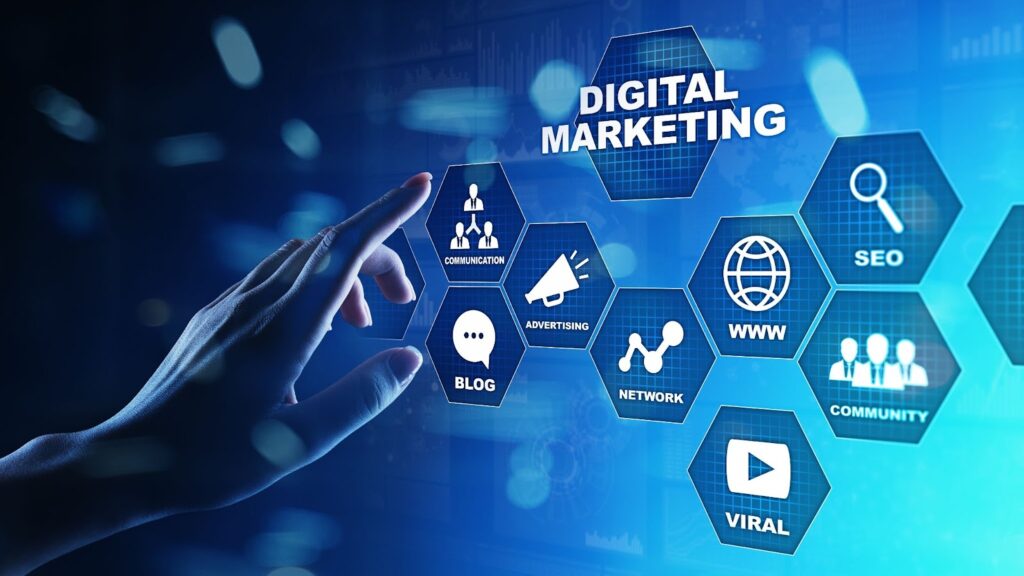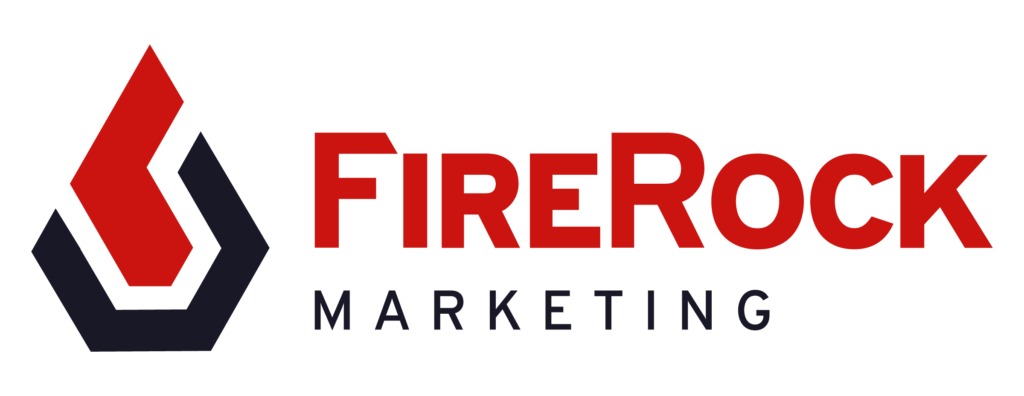
Life Sciences Marketing: In today’s fast-paced world, the life science industry is witnessing remarkable advancements that are revolutionizing healthcare and biotechnology. Alongside these scientific breakthroughs, marketing strategies in the life science sector are also evolving to keep up with the changing landscape. In this blog, we will explore the emerging trends in life sciences marketing that are shaping the future of the industry.
Data-Driven Marketing
In the digital age, data has become a valuable asset for businesses, and life sciences marketing is no exception. Data-driven marketing involves collecting and analyzing large volumes of data to gain insights into customer behavior, preferences, and market trends. With the help of advanced analytics tools, life science companies can identify target audiences more effectively and tailor their marketing strategies accordingly.
By leveraging data, companies can create personalized campaigns, deliver targeted messages, and improve overall customer experiences. Data-driven marketing strategies are revolutionizing how companies in the life sciences sector engage with customers, make informed decisions, and drive business growth.
Harnessing the Power of Data
Data-driven life sciences marketing involves collecting, analyzing, and utilizing vast amounts of data to gain valuable insights. From demographic information and purchase behavior to patient outcomes and healthcare trends, data provides a wealth of knowledge that enables companies to understand their target audience better.
Personalization and Targeting
With data-driven marketing, life science companies can segment their audience more effectively and deliver personalized experiences. By leveraging customer data, companies can tailor their messaging, recommendations, and offerings to meet individual customers’ unique needs and preferences. This level of personalization not only enhances customer satisfaction but also increases the likelihood of conversion and brand loyalty.

Optimizing Marketing Strategies
Data-driven marketing empowers life science companies to optimize their marketing strategies. Through sophisticated analytics tools, companies can measure the effectiveness of their campaigns, identify areas for improvement, and make data-backed decisions. By understanding which marketing channels, messages, and tactics yield the best results, companies can allocate their resources more efficiently and maximize their return on investment.
Enhancing Customer Experiences
Data-driven marketing enables life science companies to provide enhanced customer experiences. By analyzing customer data, companies can identify pain points, anticipate needs, and deliver relevant information and solutions in a timely manner. This personalized approach fosters stronger connections with customers and establishes trust and loyalty.
Data-driven marketing is transforming the life sciences industry, empowering companies to make informed decisions, deliver personalized experiences, and drive business growth. Embracing this trend will undoubtedly be a key differentiator in an increasingly competitive landscape.

Artificial Intelligence and Machine Learning
Artificial Intelligence (AI) and Machine Learning (ML) technologies are transforming various industries, including life sciences. AI-powered tools can analyze vast amounts of data, identify patterns, and generate actionable insights. In marketing, AI can be used to automate tasks such as customer segmentation, content creation, and campaign optimization. ML algorithms can enhance predictive modeling, enabling companies to anticipate market trends and optimize their marketing efforts.
The integration of AI and ML technologies is reshaping how companies in the life sciences sector engage with customers, optimize campaigns, and drive business growth.
Unleashing AI and ML Capabilities
AI and ML technologies have the capability to analyze vast amounts of data, identify patterns, and generate valuable insights. In life science marketing, these technologies enable companies to extract meaningful information from complex datasets, leading to enhanced decision-making and more accurate targeting. By leveraging AI and ML algorithms, companies can uncover hidden trends, predict customer behavior, and optimize marketing strategies to achieve better results.
Personalization and Targeted Marketing
AI and ML algorithms can analyze customer data, allowing life science companies to personalize their marketing efforts. By understanding individual preferences, behaviors, and needs, companies can deliver highly targeted messages, recommendations, and offers. Personalized marketing creates a more engaging and relevant experience for customers, resulting in increased customer satisfaction, improved conversion rates, and stronger brand loyalty.
Optimizing Campaigns and ROI
AI and ML technologies provide valuable insights into campaign performance, enabling life science companies to optimize their marketing strategies. By analyzing data on past campaigns, customer interactions, and market trends, companies can identify the most effective channels, messages, and tactics. This data-driven approach helps allocate resources more efficiently, improves campaign targeting, and maximizes return on investment (ROI).
Enhancing Customer Experiences
AI and ML play a pivotal role in enhancing customer experiences in life science marketing. By utilizing AI-powered chatbots and virtual assistants, companies can provide real-time support, personalized recommendations, and interactive experiences. This level of responsiveness and customization fosters deeper connections with customers and strengthens brand loyalty.
The integration of AI and ML technologies is transforming life sciences marketing, empowering companies to optimize campaigns, deliver personalized experiences, and achieve remarkable business growth. Embracing these technologies will undoubtedly position companies at the forefront of the industry’s digital transformation.

Influencer Marketing
Influencer marketing has gained significant traction in recent years, and it is now becoming an integral part of life sciences marketing strategies. Influencers, such as industry leaders, scientists, and healthcare professionals, hold considerable sway over their audiences. Collaborating with influencers allows life science companies to leverage their credibility and reach, effectively promoting products or initiatives to targeted audiences. By partnering with influencers, companies can tap into niche communities and build trust with key stakeholders.
Building Trust and Credibility
By partnering with trusted and knowledgeable influencers, life science companies can leverage their expertise to promote products and build credibility within the industry effectively.
Influencers in the life science field, such as healthcare professionals, scientists, and patient advocates, possess deep domain knowledge and enjoy a high level of trust among their followers. Collaborating with these influencers allows life science companies to tap into their established credibility and leverage their influence to endorse products or initiatives. By associating with respected industry figures, companies can enhance their reputation, gain the trust of target audiences, and establish themselves as thought leaders in their respective domains.
Targeting Niche Communities
Influencer marketing enables life science companies to reach specific niche communities that are relevant to their products or services. Influencers have dedicated followers who are highly engaged and share similar interests. By partnering with influencers who have a strong presence in these communities, companies can deliver targeted messages and engage with their ideal customer base more effectively.
Authentic Content and Engagement
Influencer marketing allows life science companies to create authentic content that resonates with their target audience. Influencers can provide firsthand experiences, expert opinions, and valuable insights, which resonate deeply with their followers. By collaborating with influencers, companies can create engaging content that educates, informs, and entertains, fostering meaningful connections with potential customers.
Measuring Impact and ROI
Influencer marketing campaigns can be effectively measured and evaluated to gauge their impact and return on investment. By tracking metrics such as engagement rates, reach, and conversions, life science companies can assess the success of their influencer collaborations, refine their strategies, and optimize their marketing efforts.
Influencer marketing offers a unique opportunity for life science companies to leverage the trust, expertise, and influence of industry leaders, ultimately driving brand awareness and establishing credibility within the life science sector. By strategically partnering with influencers, companies can effectively connect with their target audience and foster long-term customer relationships.
Virtual Events and Digital Engagement
The COVID-19 pandemic accelerated the adoption of virtual events and digital engagement in the life science industry. Even as restrictions ease, these practices are likely to remain popular due to their cost-effectiveness, wider reach, and convenience. Post pandemic virtual conferences, webinars, and online workshops provide opportunities for knowledge sharing, networking, and product demonstrations. Digital engagement through social media platforms, interactive websites, and mobile apps allows companies to connect directly with their target audiences, gather feedback, and provide real-time support.
Breaking Down Barriers with Virtual Events
Virtual events have transformed the way life science companies interact with their stakeholders. They offer an immersive and accessible platform for knowledge sharing, networking, and product demonstrations. Regardless of physical location, attendees can participate in conferences, webinars, and workshops from the comfort of their own spaces. Virtual events break down geographical barriers, expand reach, and enable companies to connect with a global audience of healthcare professionals, scientists, and industry experts.

Digital Engagement: A Two-Way Communication Channel
Digital engagement encompasses various online platforms and strategies that allow life science companies to connect directly with their target audience. Social media, interactive websites, and mobile apps provide avenues for engagement, enabling companies to share valuable content, solicit feedback, and provide real-time support. This two-way communication channel fosters meaningful interactions, builds relationships, and enhances customer experiences.
Enhancing Accessibility and Convenience
Virtual events and digital engagement offer unmatched accessibility and convenience for both companies and attendees. Participants can join events or engage with content at their own pace and convenience, eliminating the constraints of physical attendance. This accessibility fosters greater participation, facilitates knowledge sharing, and widens the impact of life science marketing efforts.
Measuring Success and ROI
Virtual events and digital engagement provide robust metrics and analytics to measure their success. Companies can track metrics such as attendance rates, engagement levels, content consumption, and conversions. This data-driven approach allows companies to assess the effectiveness of their strategies, optimize engagement techniques, and measure return on investment (ROI).
Virtual events and digital engagement have revolutionized life sciences marketing by transcending geographical boundaries, fostering engagement, and providing unprecedented accessibility. By embracing these strategies, companies can unlock new opportunities, amplify their reach, and forge meaningful connections with their target audience.
Ethical and Sustainable Marketing
As society becomes more conscious of ethical and sustainable practices, life science companies are expected to align their marketing efforts accordingly. Ethical marketing involves transparent communication, responsible use of data, and adherence to regulatory standards. Sustainable marketing focuses on promoting environmentally friendly practices and reducing the industry’s carbon footprint. By demonstrating their commitment to ethical and sustainable values, life science companies can build trust, enhance brand reputation, and appeal to socially conscious consumers.
Transparency and Responsible Communication
Ethical marketing entails transparent and responsible communication with stakeholders. Life science companies must provide accurate and reliable information about their products, adhering to regulatory standards and ensuring the highest level of integrity. By maintaining open and honest communication, companies can establish trust and credibility with customers, healthcare professionals, and the wider community.
Sustainable Business Practices
Sustainability is a key consideration in life sciences marketing. Companies can reduce their carbon footprint, minimize waste, and embrace environmentally friendly practices. By integrating sustainability into their operations, product development, and supply chains, life science companies can demonstrate their commitment to protecting the environment and promoting a more sustainable future.
Empowering Ethical Choices
Ethical marketing in the life science sector involves empowering consumers to make informed decisions about their healthcare options. Companies can provide clear and unbiased information, enabling patients and healthcare professionals to evaluate the benefits, risks, and ethical implications of different treatments or products. This approach fosters patient autonomy and ensures that decisions are based on the best interests of the individual.
Social Impact and Corporate Social Responsibility
Life science companies can make a positive social impact by engaging in corporate social responsibility (CSR) initiatives. By supporting community development projects, healthcare access programs, and scientific research, companies can contribute to the well-being of society, enhance their brand image, and create long-lasting relationships with stakeholders.
Ethical and sustainable marketing practices are essential for life science companies to earn trust, foster sustainability, and contribute to a better society. By prioritizing transparency, sustainability, and social responsibility, these companies can pave the way for responsible and impactful marketing strategies.

Staying Ahead of Marketing Trends
The field of life science marketing is evolving rapidly, driven by technological advancements and changing consumer expectations. By embracing emerging trends such as data-driven marketing, artificial intelligence, influencer marketing, patient-centric approaches, virtual events, and ethical practices, life science companies can position themselves for future success. It is crucial for organizations to stay agile, adapt to the evolving landscape, and continuously innovate their marketing strategies to effectively reach their target audiences, build meaningful connections, and drive positive outcomes in the healthcare and biotechnology sectors.
